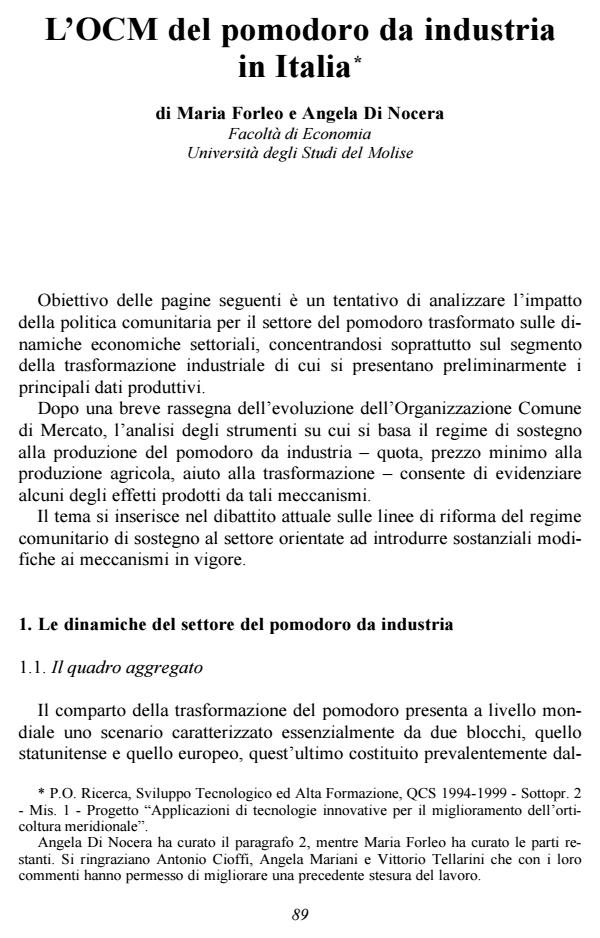L'OCM del pomodoro da industria in Italia
Titolo Rivista ECONOMIA AGRO-ALIMENTARE
Autori/Curatori Maria Forleo, Angela Di Nocera
Anno di pubblicazione 2002 Fascicolo 2001/1 Lingua Italiano
Numero pagine 28 P. Dimensione file 77 KB
DOI
Il DOI è il codice a barre della proprietà intellettuale: per saperne di più
clicca qui
Qui sotto puoi vedere in anteprima la prima pagina di questo articolo.
Se questo articolo ti interessa, lo puoi acquistare (e scaricare in formato pdf) seguendo le facili indicazioni per acquistare il download credit. Acquista Download Credits per scaricare questo Articolo in formato PDF

FrancoAngeli è membro della Publishers International Linking Association, Inc (PILA)associazione indipendente e non profit per facilitare (attraverso i servizi tecnologici implementati da CrossRef.org) l’accesso degli studiosi ai contenuti digitali nelle pubblicazioni professionali e scientifiche
The Common Market Organization (CMO) for processed tomatoes, set firstly in 1978, is currently based on Regulation No 2201/96 which provides a system of production aid granted whithin a limit of quota to processors who have paid producers a price for raw materials not less than a fixed minimum annually set by the Commission. Production exceeding quota receives aid if is paied at the minimum price, otherwise does not receive aid but it is not penalised. In this article we firstly describe in detail the actual scheme of CMO, then we try to evaluate his application in Italy, the first producer of processed tomatoes in EU and the second in the world, after US. Goals of CMO don’t seem fully realised. Minimum price produce market distorsions. Quota mechanisms are set in a way which force both processors and producers to contract annually quantities exceeding limits of the proceeding years just to avoid the reduction of future quotas via the allowance coefficient but not following the market demand. For the same reason, contracts concluded between POs and producers fail to settle production and to produce raw material according to the processors demand. External pressures to the UE (namely from the WTO) and the internal budget will lead to a CMO reform, claimed also by processors and producers even if with different position. Recently the European Commission presented a proposal to amend the Common Market Organization which introduce relevent changes into the actual scheme. This is because of some shortcomings that should addressed urgently, first of all aimed to rationalise and simplify the arrangements scheme and to adapt the production thresholds to the market demand.;
Maria Forleo, Angela Di Nocera, L'OCM del pomodoro da industria in Italia in "ECONOMIA AGRO-ALIMENTARE" 1/2001, pp , DOI: